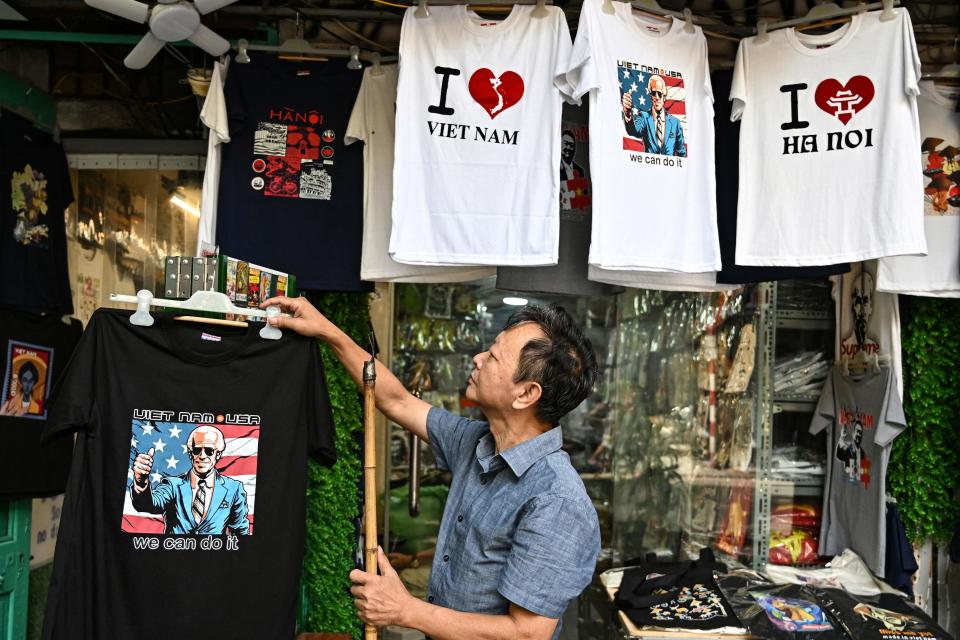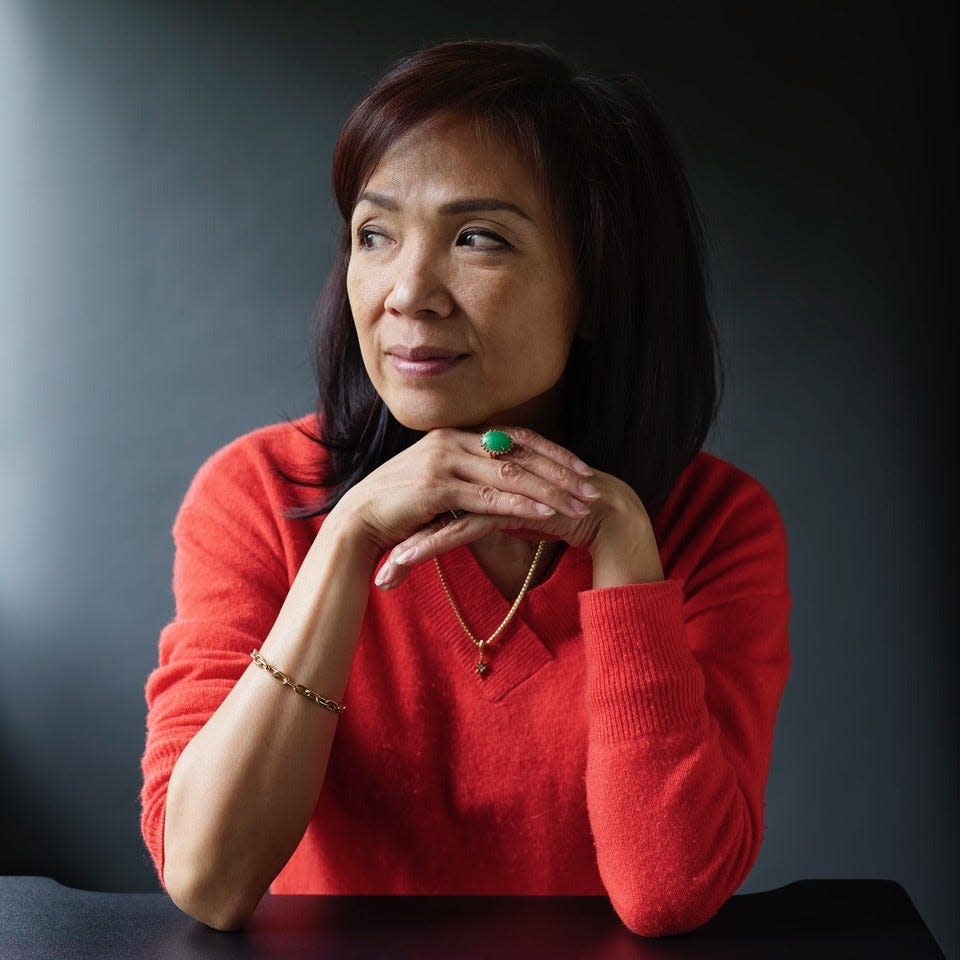Biden's visit to Hanoi holds another opportunity to heal generational trauma of Vietnam War
As a Vietnamese American who left Saigon on a wooden boat more than 40 years ago, I believe that the establishment of a “comprehensive strategic partnership,” likely to be announced by President Joe Biden during his visit to Hanoi on Sunday, carries both historic and cultural importance.
As both countries hail the agreement as a historic step toward greater economic and security ties, I see it as an opportunity to include an initiative that focuses on reconciliation of people and communities as a pathway toward true healing between two former enemies.
It could also bring a new era of mutual understanding for the millions of people on both sides of the conflict who are still suffering from the consequences of a war that ended nearly 50 years ago.

First, researchers from the Veterans Affairs Department's National Center for PTSD found that a large majority of Vietnam War veterans struggled with chronic post-traumatic stress disorder symptoms, with 4 out of 5 reporting recent symptoms when interviewed two decades after their Vietnam service.
Second, while Vietnamese Americans have made great strides since settling in the United States, deep unresolved wounds of war continue to traumatize the community across multiple generations.
Finding home in Hanoi: Learning about our past in Vietnam helps my kids see beyond legacy of war
Trauma lives on across generations, but art emphasizes empathy
South Vietnam fell in 1975. The trauma still lives with its government political flags flying high over Vietnamese American community centers and its national anthem still sung at diasporic events. I witness generations divided over the old and new Vietnam, and young minds being shut down in fear of rebuke – resulting in young people who do not acknowledge their Vietnamese heritage and roots, or who remain confused about what to believe.
While the topic of addressing consequences of war has been at the forefront of the bilateral relationship, I believe it is time for both Washington and Hanoi to take more deliberate and greater steps toward addressing reconciliation and reconnection between people and communities, not just at an economic level, to foster deeper healing.
One approach to this is to leverage the transcendent power of arts and culture to aid in the reconciliation process, and their ability to facilitate dialogue, build trust and promote intercultural competency.
There are hundreds of examples of successful programs and studies around the world, including in the former Yugoslav countries where some of the bloodiest wars in Europe took place in the 1990s. Art, in all its forms, has provided a new form of communication through creativity.
Vietnamese artists amplify our stories: 48 years after fall of Saigon, Vietnamese voices crucial to understanding Vietnam War's impact
An example is Pontanima (bridge of the souls), a choir from Sarajevo made up of individuals from all ethnic groups performing songs from four major religious traditions. The choir brought together people from different entities, and through joint concerts, tours and socializing, all groups were able to begin a dialogue in a nonthreatening space.
Such participatory art emphasizes empathy because it allows all participants to identify with and learn about the other through artistic expression and participation.
The United States has also had successful experiences in this area. I was once an intern at the Japan-U.S. Friendship Commission, established to strengthen the bilateral relationship through educational, cultural and intellectual exchange with a mission of advancing “common interests between Japan and the United States.”
Opinion alerts: Get columns from your favorite columnists + expert analysis on top issues, delivered straight to your device through the USA TODAY app. Don't have the app? Download it for free from your app store.
The richness of the American and Vietnamese art and cultures present incredible opportunities for leveraging art in all its forms to rebuild and reconnect people, creating a pathway to help them move on from a painful past to a healthier future for new generations.
A dual identity, and a historic opportunity
Being Vietnamese American, I identify with two beautiful cultures that make up the fabric of who I am. Having become a U.S. citizen more than 30 years ago, cultural touchstones like listening to Frank Sinatra, eating apple pie, going to the county fair or celebrating Thanksgiving are all ways in which I describe the true essence of what it means to be American.
On the Vietnamese side, hearing songs of Trinh Cong Son or seeing a painting of Ha Tri Hieu reminds me of my childhood. Eating simple pork stew and pickled cabbage reminds me of my grandma’s kitchen in the Mekong Delta. Films such as "Heaven and Earth" and "Three Seasons" remind me of the grit and resilience of my people. These are the cultural identities and true essence of what it means to be Vietnamese.
Fall of Saigon: Half a century later, the ghost of South Vietnam still haunts my family
This is why my husband, Peter Steinhauer, an American photographer from Colorado who spent 30 years photographing Vietnam, and I founded Vietnam Society, a nonprofit organization dedicated to deepening understanding and connections between Vietnam and the United States through art and culture, while fostering greater ties between people and communities.

We believe art and culture is a uniting medium that transcends political lines and helps people to connect and appreciate each other’s uniqueness. Through our work, including the annual autumn Vietnam Week in Washington, D.C., we aim to play a part in helping the American public and Vietnamese diaspora move on from the painful past of the Vietnam War and build a new legacy for younger generations.
As we move forward on the comprehensive strategic agreement between our two countries, let’s use this historic opportunity to establish a strategic initiative focused on people and community reconciliation and reconnections, using the power of arts and culture to create a new bridge for communication between our two countries – but which can also span from one generation to another.
Erin Phuong Steinhauer is the co-founder and executive director of Vietnam Society.
You can read diverse opinions from our Board of Contributors and other writers on the Opinion front page, on Twitter @usatodayopinion and in our daily Opinion newsletter. To respond to a column, submit a comment to letters@usatoday.com.
This article originally appeared on USA TODAY: Biden's trip to Vietnam may lead to partnership in politics – and art


